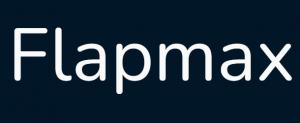Quantum News Briefs September 24: Department of Commerce Leadership Focusing on National Security Perspective for Quantum Information Systems & Technologies • Milan-based Ephos raises €7.6 million to deliver glass-based quantum photonic chips • Flapmax & Intel Announce Launch of Quantum AI Challenge to Foster Innovation Among Historically Back Colleges & Universities • Diraq Publishes Findings on Improving Qubit Stability and Scalability

In Other News: NextGov reports “Department of Commerce Leadership Focusing on National Security Perspective for Quantum Information Systems & Technologies”
 Leadership from the Department of Commerce emphasized the importance of centering a national security perspective in emerging technology arenas in a speech at tbe Center for Strategic and International Studies on September 23, particularly in quantum information systems and technologies according to the always excellent Alexandra Kelley in September 23 NextGov.
Leadership from the Department of Commerce emphasized the importance of centering a national security perspective in emerging technology arenas in a speech at tbe Center for Strategic and International Studies on September 23, particularly in quantum information systems and technologies according to the always excellent Alexandra Kelley in September 23 NextGov.
Deputy Secretary of Commerce Don Graves noted that there are larger financial and policy elements required to support a quantum information sciences and technology industry in the U.S. He said that cultivating a robust, domestic quantum information science industry extends beyond the fundamental science.
Funding was a paramount topic in Graves’s remarks, as he said that the Department of Commerce is focused on shoring up U.S. leadership in QIST work through strategic federal investments and private sector participation. Graves cited Commerce’s Regional Technology and Innovation Hubs Program as an example of identifying and investing in domestic technology ecosystems at a federal level.
Graves said that Commerce is “having ongoing discussions” with the business community to help shape the agency’s posture on export controls.
“We won’t compromise on national security, full stop,” he said. “That’s something that is absolutely essential to us, but we have to recognize that economic security is also national security, so getting that balance right is important to us.”
In Other News: TNW & EU-Startups report “Milan-based Ephos raises €7.6 million to deliver glass-based quantum photonic chips”
Ephos, a Europe-founded producer of glass-based photonic chips, announced a major expansion of its operations: an €7.6 million seed funding round and the opening of a state-of-the-art research and manufacturing facility in Milan, the world’s first dedicated to producing glass-based quantum photonic circuits. In addition, Ephos has received funding from the EU and NATO’s Defence Innovation Accelerator (DIANA); being chosen as one of just 10 companies out of a pool exceeding 1,300 applicants.
The seed round was led by Starlight Ventures, a US venture capital firm specializing in deep tech investments, with participation from Collaborative Fund, Exor Ventures, 2100 Ventures, and Unruly Capital, among others, as well as angel investors Joe Zadeh (former Vice President at Airbnb), and Diego Piacentini (former Senior Vice President at Amazon).
The funding has accelerated the launch of its new research and manufacturing facility located in the Milano Innovation District (MIND), one of Europe’s most ambitious technology hubs, which will serve as a central hub for R&D, production, and collaboration.
TNW’s reported additionally on the technology in September 23 TNW: Founded in 2022, Ephos has developed a proprietary manufacturing process that enables it to move away from silicon and build photonic chips with glass substrates — the same material used in optical fibres. Photonic chips use photons to carry and process information. They also rely on optical fibres to enable connections with other optical in-chip components, or to interface with devices such as sensors.
In Other News: AI Authority reports “Flapmax & Intel Announce Launch of Quantum AI Challenge to Foster Innovation Among Historically Back Colleges & Universities”
 Flapmax, in collaboration with Intel, announced the launch of the Quantum AI Challenge, as per September 23 AI Authority. The Quantum Ai Challenge is an initiative designed to foster innovation and collaboration among Historically Black Colleges and Universities (HBCUs). The Quantum AI Challenge 2024 prioritizes HBCU students, faculty, and researchers working in teams of 2-5 members. Projects focused on healthcare, education, energy, material science, or other social-impact fields are of particular interest. The challenge invites students, faculty, and researchers to solve real-world problems using quantum computing and AI technologies. Applications opened on September 20, 2024.
Flapmax, in collaboration with Intel, announced the launch of the Quantum AI Challenge, as per September 23 AI Authority. The Quantum Ai Challenge is an initiative designed to foster innovation and collaboration among Historically Black Colleges and Universities (HBCUs). The Quantum AI Challenge 2024 prioritizes HBCU students, faculty, and researchers working in teams of 2-5 members. Projects focused on healthcare, education, energy, material science, or other social-impact fields are of particular interest. The challenge invites students, faculty, and researchers to solve real-world problems using quantum computing and AI technologies. Applications opened on September 20, 2024.
Participants of the Quantum AI Challenge will also benefit from access to FAST Accelerator as well as the HPC AI Forum— an event organized by Flapmax to bring together High-Performance Computing (HPC) centers across Africa to discuss advancements in HPC, AI and quantum computing. .
Flapmax is committed to fostering partnerships that ignite technological growth across industries, strengthen local economies, and expand the local tech ecosystem. The Flapmax FAI Institute advances human potential with cutting-edge research and educational programs designed to prepare the workforce of the future. Through FAST Accelerator, in partnership with Microsoft, Flapmax empowers local entrepreneurs, small businesses, and startups with state-of-the-art technology and funding opportunities.
Diraq Publishes Findings on Improving Qubit Stability and Scalability
 Diraq, a global leader in quantum computing based on silicon CMOS quantum dots, has announced continues to drive new innovations in the field of scalable quantum computing as per the September 23 news release. In research led by Ingvild Hansen, a PhD student at UNSW, and Diraq and supervised by Henry Yang, the work detailed how researchers can drive qubits simultaneously and perform two-qubit logic using the same global driving microwave field.
Diraq, a global leader in quantum computing based on silicon CMOS quantum dots, has announced continues to drive new innovations in the field of scalable quantum computing as per the September 23 news release. In research led by Ingvild Hansen, a PhD student at UNSW, and Diraq and supervised by Henry Yang, the work detailed how researchers can drive qubits simultaneously and perform two-qubit logic using the same global driving microwave field.
This type of global control is essential for managing the fragility of qubits while also satisfying the requirements for scalability – allowing for the operation of millions of silicon qubits in an energy and resource-efficient manner, minimising the size and cost of fault tolerant computersConsistent and repeatable performance is also key to the underlying integrity and capability of multi-qubit systems.
Significantly, these findings highlight how a technique known as qubit ‘dressing’ can overcome the fragility of entangling gates between superposition states and increase their robustness to noise. Additional advantages include reduced control bandwidth and reduced control signal interference. Diraq researchers noted that advanced microwave engineering will be important to produce a stronger and more uniform global magnetic field, an important aspect of this work going forward



















